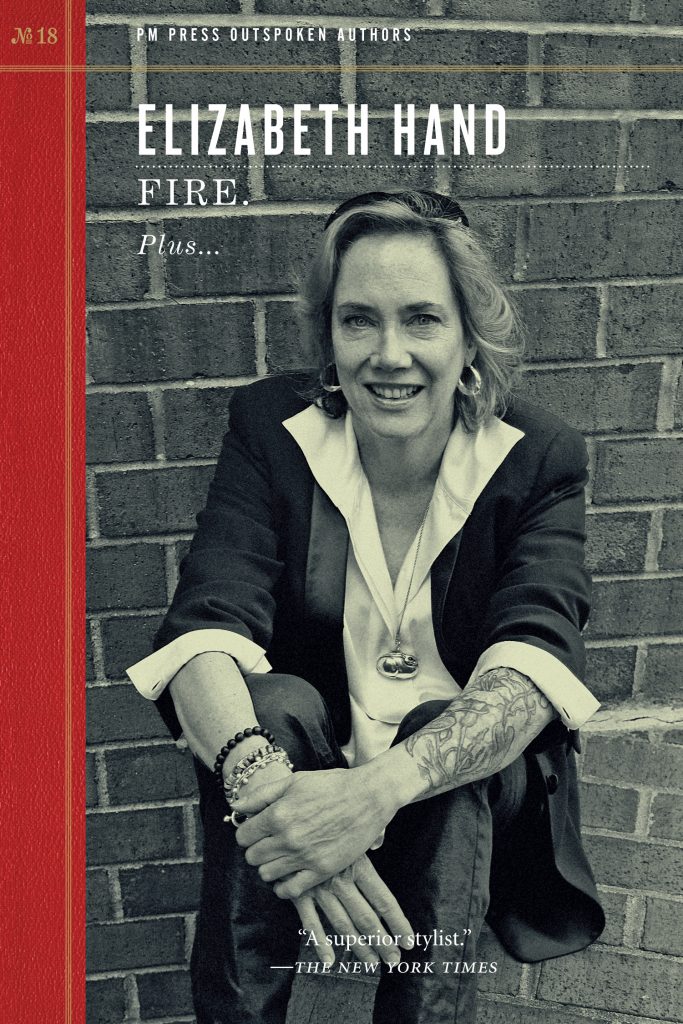Versatile author combines hard truth and strange fiction in ‘Fire.’
By Jim Ruland
San Diego City Beat
October 2nd, 2017
Fire., the latest installment in the Outspoken Author series from PM Press, features Elizabeth Hand. It includes a worthy and fascinating selection of previously published fiction and nonfiction, as well as an interview and a new short story.
I got to know the author’s work through her series of crime novels that feature Cass Neary, a hard-living punk photographer who eschews all things digital and has a knack for stumbling over dead bodies. More hard-bitten than hardboiled, Neary is a fascinating anti-hero as she stomps and steals her way through coastal Maine in “Generation Loss,” Iceland in “Available Dark” and England in “Hard Light.”
When I reached the end of the series (so far), I was thrilled to discover Hand’s work in other genres, from contemporary horror to high fantasy to movie tie-ins for the Star Wars franchise.
With its mix of fiction and nonfiction, Fire. provides powerful insights regarding the autobiographical undercurrents in her work. For instance, Hand reveals that she drew heavily from her darkest experiences when creating Cass Neary.
In another essay, she talks about how her grandfather’s sprawling estate in the Hudson Valley, with its odd accoutrements and numerous staircases, seemed like a storehouse of secrets. So she used it as the setting for Wylding Hall, a thoroughly engrossing novella that won the Shirley Jackson Award in 2015—a fitting tribute as Jackson’s The Haunting of Hill House is clearly an influence on Hand’s story.
If the purpose of the Outspoken Authors series is to ensure that writers who work in marginalized genres aren’t overlooked, Hand is a fitting choice. Over the course of her career she has penned countless reviews and championed underground writers to make sure they don’t fade from memory.
The essay The Woman Men Didn’t See is a fascinating profile of a woman who wrote science fiction novels with a male pseudonym. But Alice Sheldon/James Tiptree Jr. didn’t stop there; Sheldon adopted Tiptree’s persona, which was decidedly masculine, in her correspondence with editors and other writers in the field. Hand’s portrait of Tom Disch, the prolific writer who popularized the term “speculative fiction,” is a soaring tribute to a life dedicated to the imagination.
Whether readers are new to Hand’s work or looking for a place to start, Fire. is an indispensible roadmap to her many worlds.







